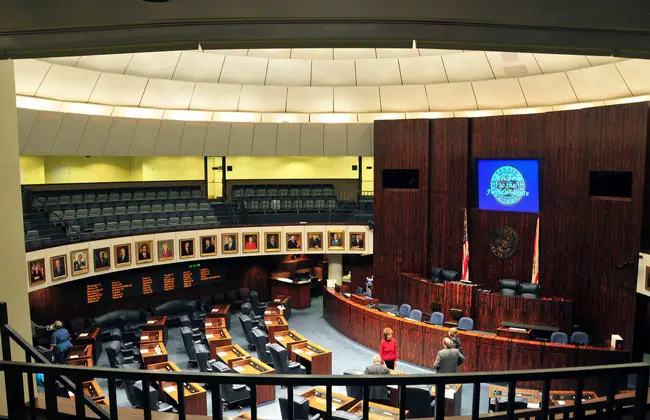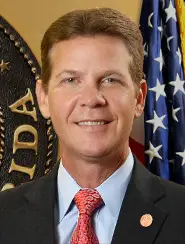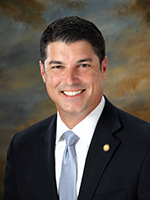
Senate leaders are considering legal action to try to force the House to return to the Capitol to finish out the work week as the slow-motion collapse of the regular legislative session appeared to near its end Wednesday.
With the Senate completing the business it could after the House’s abrupt decision to leave town Tuesday amid a health-care and budget dispute, Senate President Andy Gardiner, R-Orlando, sent a letter asking House Speaker Steve Crisafulli, R-Merritt Island, to call House members back to Tallahassee.
Gardiner cited an obscure portion of the state Constitution saying that “(n)either house shall adjourn for more than seventy-two consecutive hours except pursuant to concurrent resolution” — meaning, he said, the House could not end its session on Tuesday without the Senate’s consent.
“The course of action you have taken is not only unconstitutional; it is unprecedented under our present state Constitution,” Gardiner wrote.
The Senate will be ready to return to session up until 11:59 p.m. Friday, Gardiner said, though there appeared to be no plans for the upper chamber to return if the House does not. If the Senate does not formally return for a final adjournment, the session would lapse at 11:59 p.m. without ceremony.

Crisafulli swiftly responded to Gardiner’s letter with one of his own. The House, he said, isn’t returning.
“We can have disagreements on policy issues, each year the House and Senate have plenty,” the speaker wrote. “At the end of the day, if the two sides don’t agree, bills die. That is how the process works.”
The House says the 72-hour provision doesn’t apply to adjourning “sine die” — from the Latin phrase for “without day” — the official end of the legislative session.
“This provision deals with temporary adjournment during session, not adjournment sine die. … They are separate parliamentary procedures, initiated by distinct motions,” House general counsel Matthew Carson wrote in an explanation sent to reporters Tuesday.
Speaking with reporters after Wednesday’s session, Gardiner said the Senate is considering taking the House to court to resolve the dispute — even if it didn’t end the current standoff between the two.
“I think that that’s why at some point, whether it’s this week or in the future, there will need to be a discussion before a court to exactly interpret what that is,” Gardiner said. “We certainly believe that they have an obligation to be here.”
Senate Appropriations Chairman Tom Lee, R-Brandon, conceded that it’s “unlikely” the Florida Supreme Court would rule on the issue before the Friday deadline.
But Senate leaders say the state needs to set a precedent because an early adjournment could again be used as a negotiating tactic in the future.
Meanwhile, health payments to hospitals for uninsured Floridians hang in the balance
“The importance of all of this is to keep one house from leveraging the other house,” said Senate Rules Chairman David Simmons, an Altamonte Springs Republican and a lawyer. “In other words, the important work of the people of the state of Florida demands that we both stay here for the full time period that has been given us to accomplish the task that we have at hand.”
The current, increasingly bitter rift between the House and Senate, both of which are dominated by Republicans, has grown out of the June 30 expiration of the state’s $2.2 billion Low Income Pool, or LIP, program. LIP is largely used to cover the expenses of uninsured, low-income Floridians who show up at hospitals needing treatment.
The Senate wants to use $2.8 billion in Medicaid expansion funding to help lower-income Floridians purchase private health insurance. Supporters of Medicaid expansion, including the federal Centers for Medicare & Medicaid Services, say that could help lessen the state’s dependence on LIP.
Federal officials have also suggested that how much the state gets in LIP will be affected by how much of that funding could be offset if the state expanded Medicaid.
House members touted a new statement from CMS spokesman Aaron Albright, issued late Tuesday, which they said marked a reversal of the federal agency’s previous position — in a letter dated April 14 — that LIP and Medicaid expansion are linked.
“We will work with Florida and each state that has an uncompensated care pool regardless of its Medicaid expansion status, to support access to health care for low-income residents that works for individuals, hospitals and taxpayers, taking into account the state’s specific circumstances,” Albright said Tuesday. “CMS will review proposals regarding uncompensated care pools based on the same principles whether or not a state has expanded Medicaid.”
On Wednesday, Crisafulli credited a lawsuit filed by Gov. Rick Scott to force the decoupling of the issues for the purported change of heart.
“We applaud CMS for their statement, and agree that the (Medicaid) policy preference of the Obama administration should not be used as leverage for the Low Income Pool,” he wrote in a memo to House members.
But Gardiner and other supporters of a Medicaid-funded coverage expansion said the statement Tuesday was nothing new.
“Obviously, some over there (in the House) are trying to pounce on that,” he said. “But I think if you read a little bit deeper down, it really doesn’t say anything different than what the April 14 letter did.”

Scott, a former chief executive at a for-profit hospital chain, wants the commission to consider financial data, medical education, contributions to hospital foundations, patient data, taxes and salaries and benefits for hospital executives, lobbyists and lawyers.
The panel would consider some of the same information about insurance companies.
Aside from calling for a “continuation budget” if the House and Senate couldn’t reach an agreement — something Senate leaders quickly rejected — Scott, who opposes Medicaid expansion, has largely kept his distance from the House-Senate tussle.
Asked Wednesday if Scott should have played a larger role, Gardiner responded tersely: “You’d have to ask him.”
Democrats in both chambers have worked to suppress their glee as GOP lawmakers go to war with each other. House Democrats held their usual pre-session meeting Wednesday, saying they were ready to work if necessary.
Senate Minority Leader Arthenia Joyner, D-Tampa, issued a statement late Wednesday blasting House leaders and backing Gardiner in the health-care fight.
“Once negotiations begin to convene a special session to reach a budget compromise, I urge the Senate to remain committed to our healthcare expansion plan,” she said. “Because standing alongside you are not only the voices of Republican and Democratic senators — along with House Democrats — but the voices of 1 million Floridians looking to you to stand strong for them. Do not let them down.”
–Brandon Larrabee and Dara Kam, News Service of Florida





























Leave a Reply